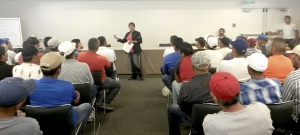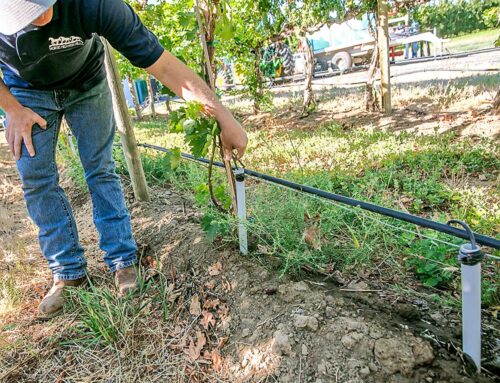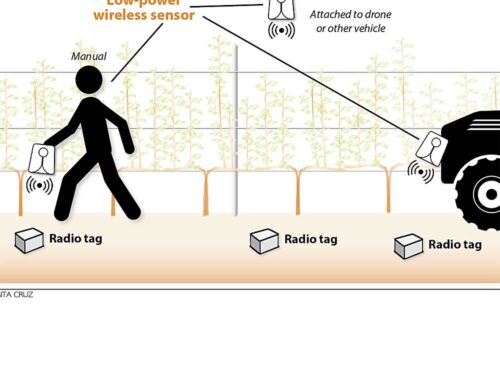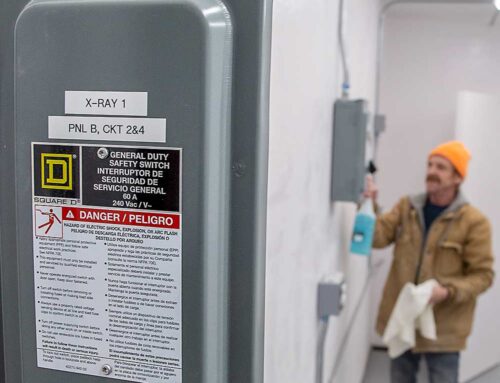
Stemilt employee and H-2A member participant, Elizabeth Hernandez answers questions prior to visiting the U.S. Consulate in Tijuana, Mexico on on May 12, 2014. (Courtesy Heri Chapula/Washington Farm Labor Association)
Growers and labor groups in Washington must follow a new procedure to gain approval for temporary worker housing for foreign guest workers.
This year, housing applicants must have zero site deficiencies, minor or major, before the U.S. Department of Labor will certify the facility to be used as housing for workers visiting under the H-2A visa.
To make sure they receive their approval on time, the state Department of Health, charged with licensing all temporary housing facilities, has recommended all applicants apply 90 days ahead of their federal certification deadline, which is already 30 days before they are allowed to move in their workers.
In the past, growers had been receiving both a state license and federal certification even if they had minor infractions, such as a missing screen door or burned out light bulbs.
This year, the state Employment Security Department, which contracts with the federal government for H-2A certification, is insisting on follow-up inspections to verify full compliance.
Employment Security Department officials have agreed to handle the follow-up inspections of minor issues themselves because the Department of Health has only two field inspectors to handle 500 inspections and complaint investigations per year, said Nancy Tyson, executive director of the health professions and facilities for the Department of Health.
As a result of the procedure changes, many growers will not be able to host their H-2A workers until later than the date they planned, possibly meaning work in the orchards will begin late.
“We have millions of dollars on the line,” said Mike Gempler, executive director of the Washington Growers League, a Yakima-based labor association.
One grower will receive his employees 20 days late due to some burned out or missing light bulbs, said Dan Fazio, executive director of WAFLA, an Olympia-based labor group.
Gempler and Fazio suspect the two state agencies did not announce the changes to growers and labor groups quickly enough, making the problems worse. Tyson said the agencies both were scrambling to find a solution.
“We cannot let this happen again, and we’re not going to,” Gempler said.
Meanwhile, employers and housing operators face new temporary worker housing rules imposed in 2015 by the state Department of Health.
Here are some examples from a list sent by the Washington Growers League to its members.
—All dwelling units with a sleeping area must have a carbon monoxide detector in addition to smoke detectors.
—Bathrooms must include walled partitions between toilets and must have separate flush toilets for men and women.
—Showers must have partitions with nonabsorbent walls.
—All food-handling and cooking facilities must be covered, as well as enclosed or screened. Outdoor grills are exempt as long as the facility has ample covered and enclosed cooking areas.
—Common cooking facilities must have four surfaces for every 10 people.
—Bedrooms, bathrooms and toilet and shower stalls must have locks.
—Sleeping rooms must include personal storage space with some enclosed, anchored and lockable portions.
—All facilities must comply with state and federal laws for lead-based paint. •
More online
For the full list of new rules for the H-2A programs, visit: goodfruit.com/2015-worker-housing-rules/
– by Ross Courtney






Leave A Comment